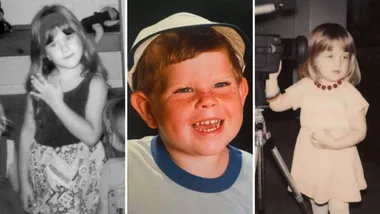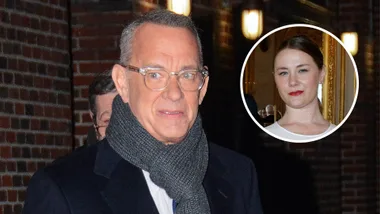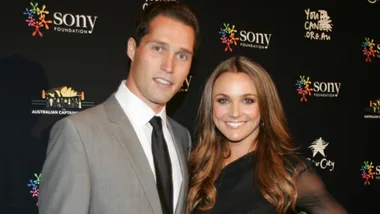Sometimes, the difference between joy and sorrow is only a slender thread. For Tracy Grimshaw, seeing Tasmanian miners Todd Russell and Brant Webb emerge from the Beaconsfield gold mine after 14 days entombed a kilometre beneath the surface was almost too much. Standing beside Australian Worker’s Union (AWU) boss Bill Shorten, she watched, mesmerised, as the two men took their first steps of freedom, raising their arms in elation and punching the air in a triumphant gesture that resonated across the country and, indeed, across the world.
“I felt the tears welling up, I unashamedly admit that,” recalls Tracy, the 45-year-old host of A Current Affair. “I was just so happy that they were finally out, able to feel the fresh air on their faces, able to look up and see, not darkness, but the open sky above them.
“In that moment, I was transplanting myself into their shoes and thinking, how would I be feeling seeing the sky for the first time in two weeks and then seeing my family again after living with the possibility that I would never see them again? It was an intense, emotional ride for us — what must it have been like for them?”
Inside the mine compound, Todd Russell, 34, Beaconsfield born and bred, embraced his wife, Caroline, and their three children, Trent, 11, Maddison, nine, and Liam, five, while Brant Webb, 37, rushed into the arms of his wife, Rachael — his childhood sweetheart and “soul mate”, to whom he has been married for almost 20 years and who said during the drawn-out rescue that she would not speak until she could hold her husband’s hand once again — and their 18-year-old twins, Zach and Zoey.
Tracy was elated at the touching and tearful reunions. Yet her euphoria was tempered by a conflicting emotion. She, like so many, felt soaring joy at these men’s release, but in almost equal measure, also felt the grief and sadness that the family of Larry Knight, the 44-year-old miner and father of three who died in the Anzac Day mine cave-in at Beaconsfield, 40km north of Launceston, must be experiencing at that same moment.
“I have been in television for 25 years,” says Tracy, “and this is the most unique story I’ve ever covered because of the range of intense emotions that are attached to it. It has every emotion that we, as human beings, have. While you have surging relief and happiness on one side, there has been a terrible tragedy in which a man died. In many ways, Larry Knight’s death has been overshadowed, sadly for his family, by the sheer bloody miracle that we all witnessed here.”
That same miracle also overshadowed the tragic and sudden death of 60 Minutes journalist Richard Carleton, who suffered a heart attack during a press conference as he pursued a story about mine safety. “It was simply shattering, not only at the time, but afterwards, too,” says Tracy.
Tracy says her experience at Beaconsfield — she was there continuously for 11 days and nights — was life-changing. Not only did she witness and admire the courage and mateship of two men in the grimmest of circumstances, she met members of their families and came to respect them for their stoicism and belief. She saw the power of hope and the strength of love and family.
In the June issue, Tracy speaks exclusively to The Australian Women’s Weekly about how the life-and-death drama of the Beaconsfield mine rescue was a “shattering and life-changing” experience.











